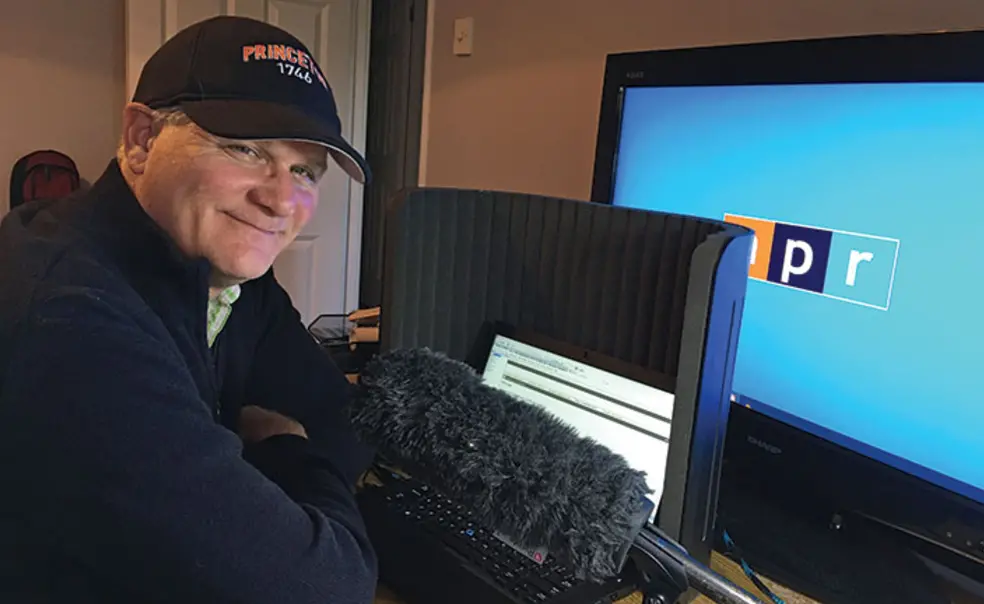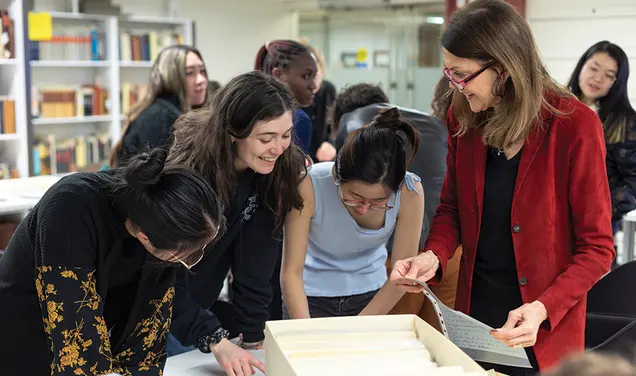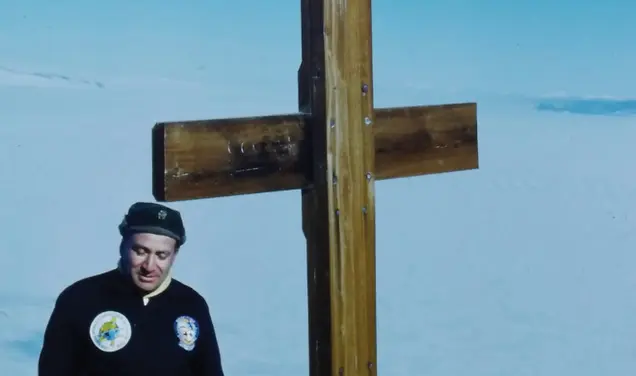London Journalist Frank Langfitt ’86 Finds Ways to Tell COVID Stories
“Like everyone else, I sometimes find the news overwhelming”
Frank Langfitt ’86 is NPR’s London correspondent. He was previously based in East Africa and China. His book, The Shanghai Free Taxi: Journeys with the Hustlers and Rebels of the New China, was published last year.
The coronavirus has changed the way most of us work, and the same holds for broadcast journalists. Normally, I work out of the BBC headquarters in central London, where NPR has a studio. When it became clear that working in a building with thousands of other staff was a very bad idea, I grabbed my gear and headed home to the London suburbs.
My family had just moved into a new house. Once we cleared out the boxes, I set up a studio in an upstairs office with two screens — one for writing scripts, the other for editing digital audio. I plugged my Comrex, a small broadcasting device, into an Ethernet port and was ready to go live on Morning Edition and All Things Considered.
Although the UK is largely locked down, the government permits journalists to move around. Traveling, though, entails risks, especially on the Tube, where reduced service has led to jammed trains with no social distancing. My solution: Report on foot and bike, using a boom microphone that extends up to 10 feet. I’ve found people eager to speak. On one walkabout, I came across Archie Greensmith, 9, who was out mailing letters with his parents as part of their once-a-day-government-permitted exercise.
Archie was candid about the pros and cons of homeschooling. “I miss some of my friends,” he told me. “I don’t miss my teacher.”
A few blocks away, Phil Stafford had tied up his antique motor yacht along the edge of the River Thames. Stafford, 72, runs his boat as a boutique restaurant, cruising along the river and serving five-course meals. The coronavirus wiped out Phil’s bookings, and he now spends his time practicing his electric piano in the main cabin. Standing on the dock, I reached my boom mic through the boat’s doorway to capture him playing a Randy Newman song called “Bad News From Home.”
One of the big stories in the UK — as in the United States — is the risk to health-care workers who scrounge for personal protective gear and have barely been tested for COVID-19. Using social media, my producer found front-line hospital staff to share their experiences as we recorded them on FaceTime and WhatsApp. The audio quality isn’t as good as my boom mic, but it’s a safer way to speak with people who have been treating coronavirus patients.
Like everyone else, I sometimes find the news overwhelming. That’s when I jump on my bike and head out to the Thames tow path, riding along the edge of canals and around locks that date to the 17th century. It’s lovely and tranquil, and when I pass others along the trail, I try my best to keep my distance.
PAW reached out to alumni who are on the front lines of the COVID-19 crisis or are affected by it in different ways. Read their essays here. More will appear in our next two issues and online over the next few weeks. Write to us at paw@princeton.edu with your own story.










No responses yet